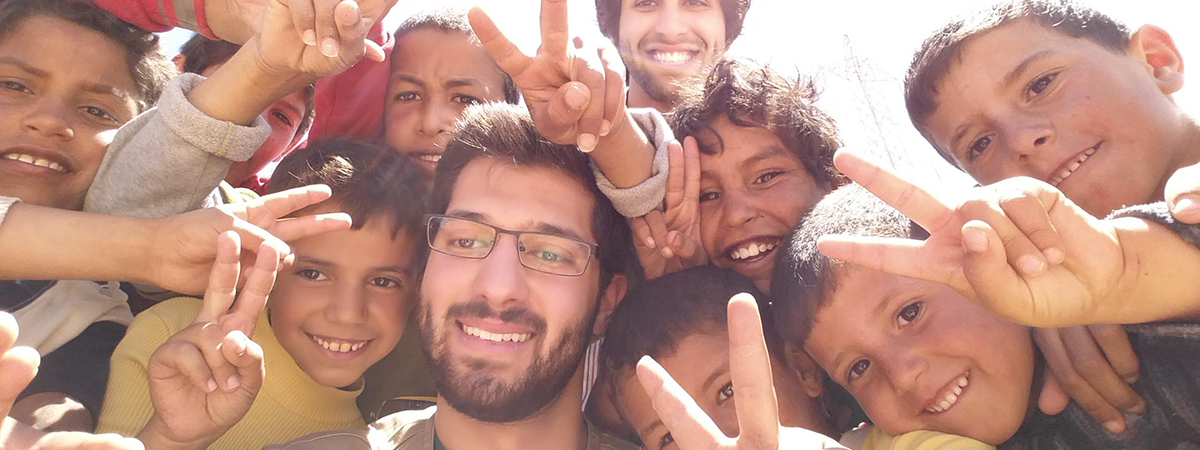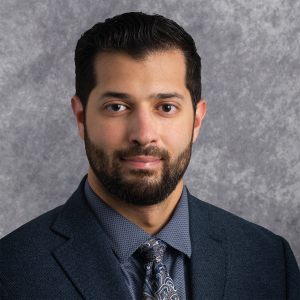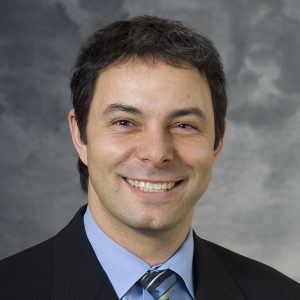
Dr. Amr Sabbagh, a Michigan native of Syrian descent, has been fortunate to build a career rooted in patient care and global health advocacy. His journey began through connections nurtured during medical school and refined through his vitreoretinal surgery fellowship at the University of Wisconsin School of Medicine and Public Health.
He was first introduced to international medical relief efforts through the Syrian American Medical Society (SAMS), a non-profit humanitarian organization with hundreds of medical professionals volunteering within it. His first hands-on experience came in 2015 while in medical school, where he joined a medical mission trip in Jordan to care for Syrian refugees tragically displaced as a result of war.
 “My involvement with SAMS began long before the war reached its tragic height,” said Dr. Sabbagh. “As the war progressed, SAMS continued to evolve as a vital medical aid organization — one that I felt compelled to support.”
“My involvement with SAMS began long before the war reached its tragic height,” said Dr. Sabbagh. “As the war progressed, SAMS continued to evolve as a vital medical aid organization — one that I felt compelled to support.”
As Dr. Sabbagh’s training advanced, so did his focus. He joined the SAMS ophthalmology chapter, a small but growing group of attending physicians, fellows, and residents in the field — through which he met Dr. Aref Rifai, a vitreoretinal surgeon at the Retina Center of Pensacola and current president of SAMS. Dr. Rifai’s strong efforts had helped secure an Alcon Constellation surgical machine, capable of conducting both advanced retinal and cataract cases, for an eye hospital in Syria. The next step would be to gather compatible equipment necessary to conduct these surgeries.
Enter Dr. Michael Altaweel — chief of the retina service at the University of Wisconsin Department of Ophthalmology and Visual Sciences. As circumstances would have it, he had amassed nearly $140,000 worth of donated surgical tools from Alcon — all pristine, unopened but technically expired. The plan had originally been to send them elsewhere, but logistics and red tape got in the way.

“For months, the boxes just sat in my office,” Dr. Altaweel recalled. “We had everything ready — tools designed specifically for the Constellation machine — but no clear path to get them where they were needed most.”
One day Dr. Altaweel overheard Dr. Sabbagh asking the operating room staff for any expired equipment he could acquire. “That’s when it clicked,” Dr. Altaweel said. “What was destined for disposal here in the United States could transform lives there — equipment we’d use once and discard would be sterilized and reused, making sight-saving surgery possible for years.
Together, Dr. Altaweel and Dr. Sabbagh spent a Saturday rummaging through the approximately 20 boxes that had occupied most of his office, consolidating what they could and discarding what was not viable. Ultimately 13 boxes remained, containing thousands of supplies, which were shipped to Dr. Rifai’s office in Florida where he would ensure they made it to Syria safely.
“I was simply at the right place at the right time,” said Dr. Sabbagh. “Had it not been for both Dr. Altaweel and Dr. Rifai’s incredible efforts, this would not have been possible. I pray these supplies will last for years on end and benefit those who need them most.”
For Dr. Sabbagh, these experiences have shaped both his outlook and long-term goals. He remains committed to bridging the resource gap — both in his hometown of Flint, Michigan and internationally.
“My family, roots, and community matter deeply to me,” said Dr. Sabbagh. “My mentors have shown me that direct action, combined with local relationships and networks, can help create lasting impact. I want my work to honor that, offering meaningful help wherever it may be needed.”